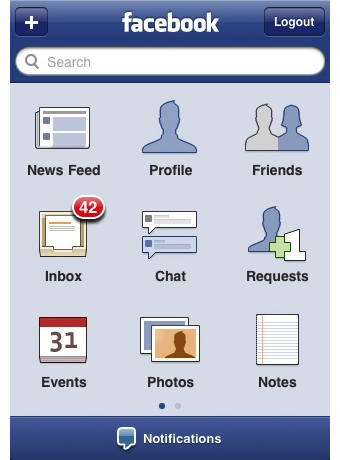Apple is on the receiving end of a lot of grief over the defensive wall around the iPhone, iPod Touch and iPad. Many developers are vocally critical of the rules governing how apps are approved and which technologies are selectively excluded. Most notably, Adobe‘s Flash technology has been very publicly rejected by Steve Jobs. Some contend that this is a calculated business move by Apple that ensures control over applications that run on the iDevices. Others tow the party line by sighting the battery drain or buggy nature that sometimes accompanies Flash. However people would like to split the minutia, the overarching theme is that Apple wants to maintain control over the user experience.
 Closed systems like this have several benefits. Software can be vetted by experts before it gets into the market: blocking confusing functionality, managing the user’s exposure to risk, protecting the devices from viruses and ensuring a high quality application pool. No one really complained too loudly about Apple’s closed systems when it comes to hardware accessories. But there you see other benefits more clearly like device compatibility, quality control and even price in some cases.
Closed systems like this have several benefits. Software can be vetted by experts before it gets into the market: blocking confusing functionality, managing the user’s exposure to risk, protecting the devices from viruses and ensuring a high quality application pool. No one really complained too loudly about Apple’s closed systems when it comes to hardware accessories. But there you see other benefits more clearly like device compatibility, quality control and even price in some cases.
Ignoring the consumer benefits of closed system, many developers see them as a way for companies like Apple to make more money. Selling a program in the iTunes App Store requires that application programmers to pay Apple a portion of their revenue and if an application duplicates functionality of a built-in app it’s likely to be rejected by Apple outright. Not every closed system draws ire from the programming community.
Another high-profile closed system is found in Facebook‘s messaging system. While they’ve opened up their chat to programs like Trillian, but their system that most closely resembles email remains closed. Users of regular email cannot get messages in, but Facebook’s system does send a copy of messages sent out to recipient’s email accounts. This has the clear benefit of reducing spam, but you don’t hear email marketers making too much noise about it. They are not well loved and their complaints about how they can’t send messages into everyone’s favorite social network will likely fall on deaf ears. Read more





 In my last post I mentioned how some people with a narrow view of the Internet couldn’t verbally distinguish it from an email message. Obviously that’s a very small subset of folks, but it brings up an interesting phenomena. The Internet has a few primary use cases for a majority of the man-hours that are spent online and, while the percentage of time in each use case has changed, the cases themselves have largely remained the same since the 90s, maybe even the 80s! Of these cases, many of them are coalescing at Facebook’s doorstep.
In my last post I mentioned how some people with a narrow view of the Internet couldn’t verbally distinguish it from an email message. Obviously that’s a very small subset of folks, but it brings up an interesting phenomena. The Internet has a few primary use cases for a majority of the man-hours that are spent online and, while the percentage of time in each use case has changed, the cases themselves have largely remained the same since the 90s, maybe even the 80s! Of these cases, many of them are coalescing at Facebook’s doorstep. Closed systems like this have several benefits. Software can be vetted by experts before it gets into the market: blocking confusing functionality, managing the user’s exposure to risk, protecting the devices from viruses and ensuring a high quality application pool. No one really complained too loudly about Apple’s closed systems when it comes to hardware accessories. But there you see other benefits more clearly like device compatibility, quality control and even price in some cases.
Closed systems like this have several benefits. Software can be vetted by experts before it gets into the market: blocking confusing functionality, managing the user’s exposure to risk, protecting the devices from viruses and ensuring a high quality application pool. No one really complained too loudly about Apple’s closed systems when it comes to hardware accessories. But there you see other benefits more clearly like device compatibility, quality control and even price in some cases.
